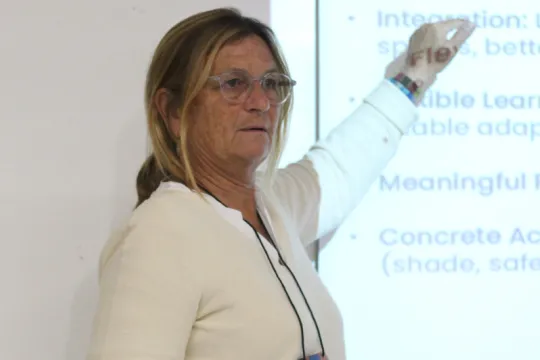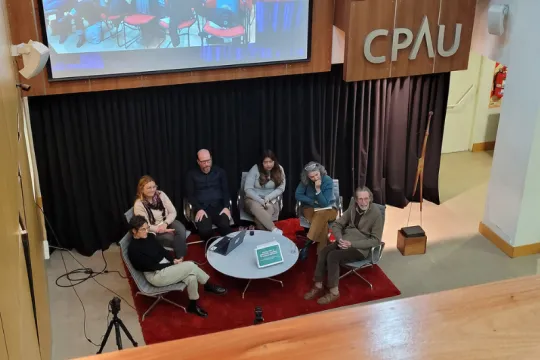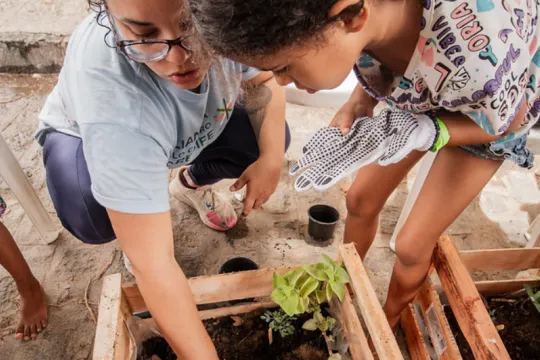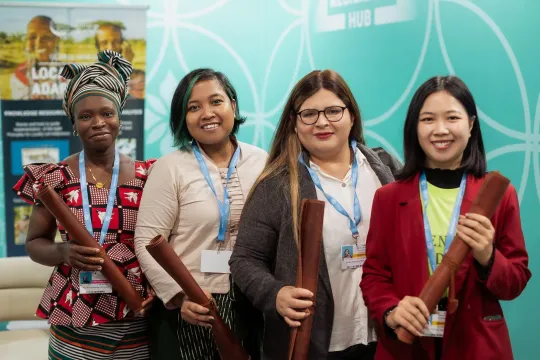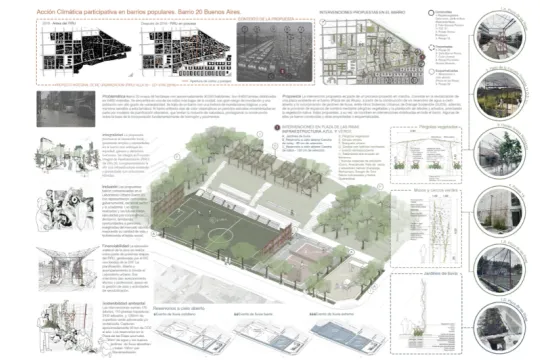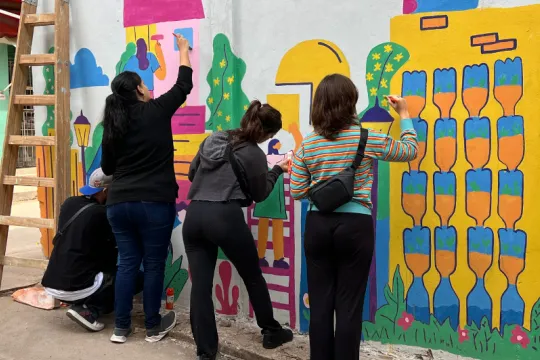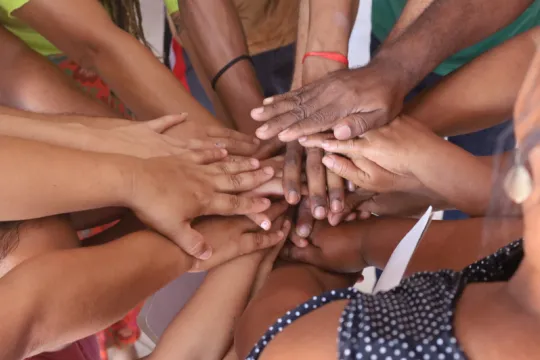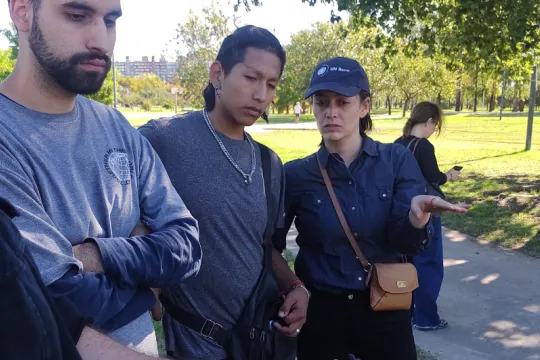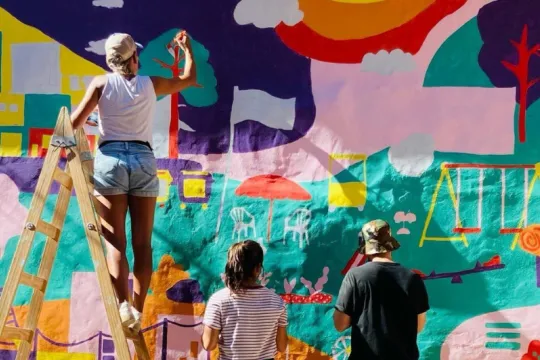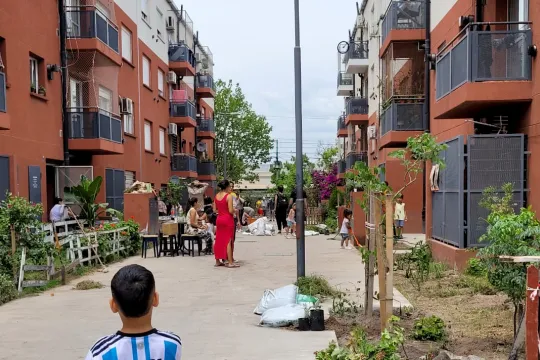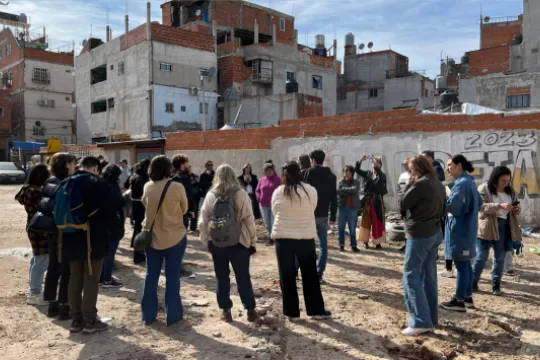Villa 20 is a neighbourhood within Buenos Aires undergoing a participatory reurbanization process. The Buenos Aires Urban Lab works to complement this ongoing process with new ideas, connecting decarbonization with urban inequalities and climate justice.
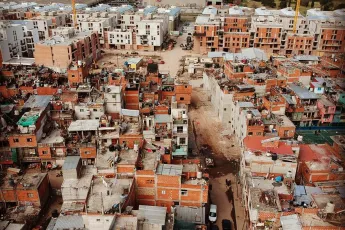
Aerial view of Villa 20 neighbourhood in Buenos Aires. © IIED Argentina
Buenos Aires, Argentina
Buenos Aires, the capital of Argentina, has the highest per capita gross domestic product (GDP) in the country, but there are historically marked differences in socioeconomic levels and socio-environmental conditions between the north and south of the city.
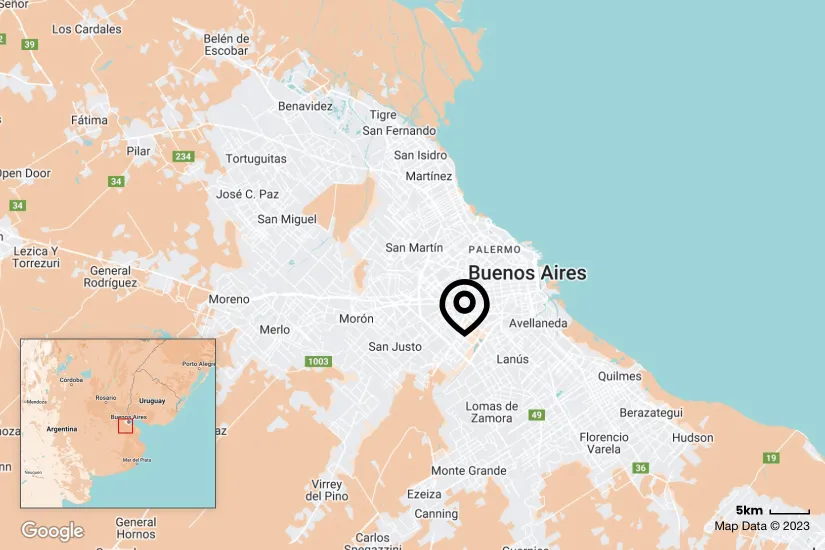
Climate change impacts like extreme heat events, floods, water scarcity and windstorms, coupled with economic globalization impacts like air, water and soil pollution and loss of natural habitats affect especially the most vulnerable.
Buenos Aires has a humid subtropical climate with hot, heavy summers and cool winters. The city is prone to flooding, though it has also been adversely affected by drought events. Measures had to be taken to mitigate climate change impacts, addressing flood risk management for critical infrastructure, economic zones and human settlements.
Slums and informal settlements in Buenos Aires are growing in size. Most face significant resource and infrastructure deficits, as well as high flood risk, and are thus highly vulnerable to the effects of a changing climate. Tackling climate change in Buenos Aires requires integrated adaptation and mitigation approaches that put the most vulnerable at the centre. The ongoing socio-urban integration processes in informal settlements provide opportunities to integrate climate action.
Context & Background
Villa 20 is a slum neighbourhood in Buenos Aires that is currently undergoing a participatory reurbanization process involving a complex intervention developed in stages. The process is being coordinated by the Institute of Housing of the City of Buenos Aires – Instituto de Vivienda de la Ciudad (IVC) – and developed within the space of the Participatory Management Table. This means that each stage of the project includes processes that allow decision-making by consensus.
The Urban Lab works to complement the ongoing reurbanization process with new ideas, connecting decarbonization with improving urban equality and climate justice. The aim is to generate mindset shifts among different stakeholder groups and transformative urban coalitions to support decarbonization, equity and climate justice by means of integrating alternative practices, such as the use of blue-green infrastructure approaches, to potentiate the reurbanization process.
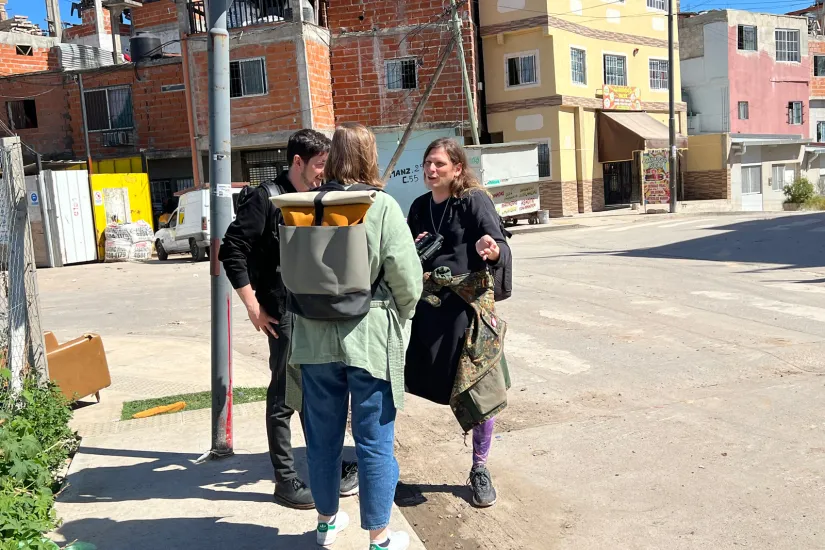
UNU-EHS researchers speak with local filmmaker in Villa 20, Buenos Aires, Argentina, on 4 April 2022. © Arianna Flores Corral / UNU-EHS
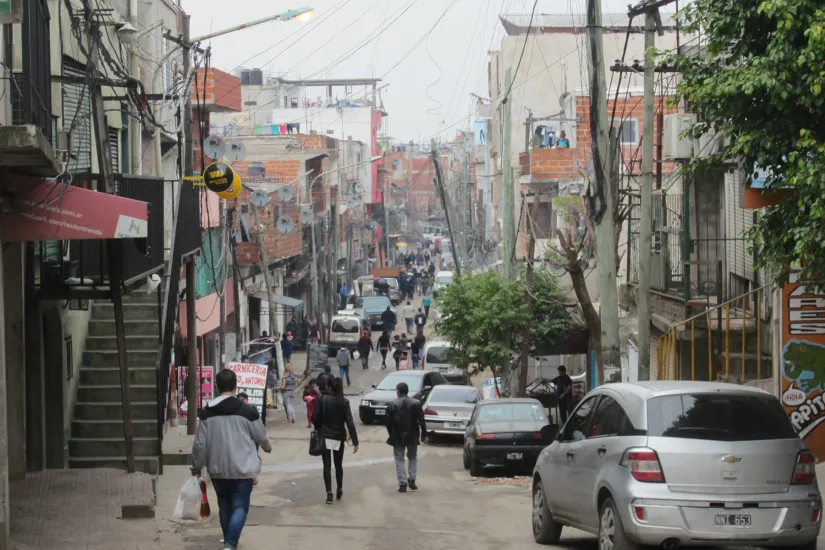
Daily urban life in Villa 20, Buenos Aires, Argentina, 23 March 2021. © Instituto de Vivienda de la Ciudad/ IVC
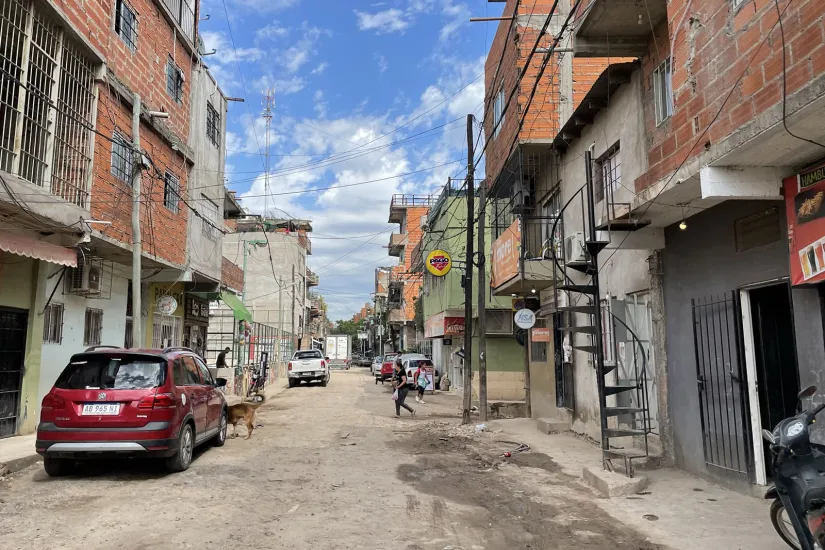
An unpaved street in Villa 20, Buenos Aires, Argentina, 5 April 2022. © Lucas Turmena / UNU-EHS
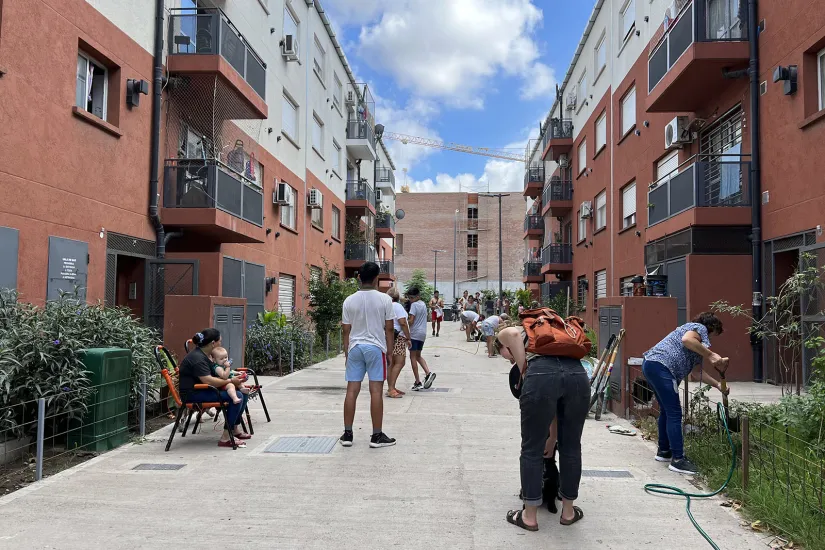
Neighbours garden together for the progress of Villa 20, Buenos Aires, Argentina, 18 March 2023. © Fernando Almansi / IIED-AL.jpeg
The Urban Lab
A collaboration agreement has been signed with the IVC, integrating the Urban Lab into the space of the Mesa Ambiental – meetings with neighbourhood residents in which environmental and habitat issues such as waste management are discussed – as part of the formalization process. A work plan has been agreed upon. Additionally, progress has been made on the design of workshops and meetings (inside and outside the Urban Lab) to generate interest from local stakeholders, finding common ground and gaining a better understanding of approaches to move forward in the co-design of demonstration projects. These concern topics like decreasing the Urban Heat Island effect, improvement of air and water quality, noise reduction, CO2 capture and greater control in stormwater run-off management, amongst others.
Lastly, the process is supported with communication strategies and initiatives that seek to disseminate the transformative changes taking place, raising public awareness of environmental issues and their consequences in Buenos Aires.
Who takes part in the Coalition
- Social leaders of Villa 20
- City officials of the IVC (Instituto de Vivienda de la Ciudad)
- Villa 20 Memory Archive
- City officials of the Office of Climate Change of the Environmental Protection Agency, Ministry of Environment and Public Space, City of Buenos Aires
- City officials from the Office of Territorial Data Generation, Urban Anthropology, Urban Development Secretariat, City of Buenos Aires
- Representatives from the Offices of the City Ombudsman and Ombudsman from the Ministry of Justice
- Representatives from the Development Bank of Latin America (CAF)
- Representatives from the Agence Française de Développement (ADF)
Contact: iied-al@iied-al.org.ar
Instagram: @lav20.ar
